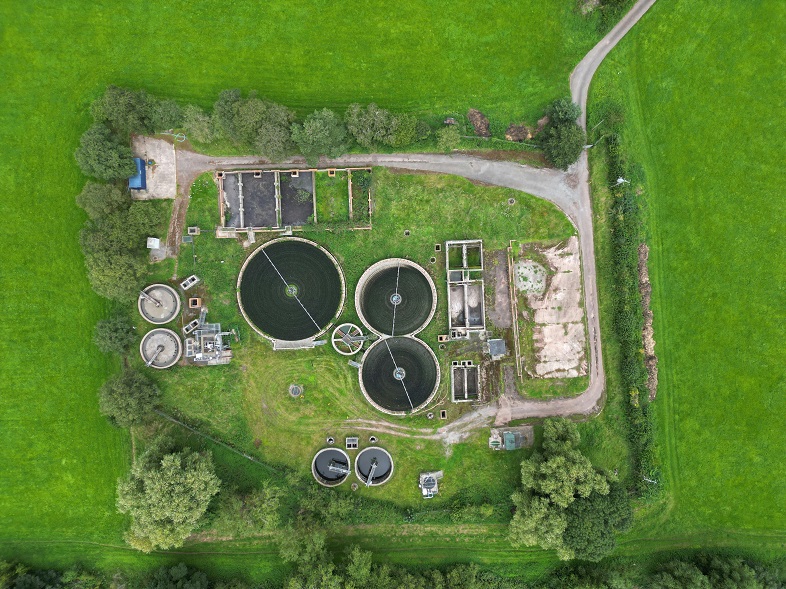Industrial water testing is a critical system to ensure that water utilized in commercial operations meets each regulatory standard and the requirements for efficient strategies. With the growing focus on environmental sustainability, regulatory compliance, and operational performance, industries must reveal and control the exceptional of their water sources greater closely than ever before. The importance of commercial water trying out, the types of assessments commonly used, and the blessings of a strong water trying out program in reaching both compliance and performance.
Why Industrial Water Testing Matters
Industrial centers use water in numerous methods, along with production, cooling, cleansing, and waste disposal. The excellent of water affects no longer only the efficiency of these tactics but additionally the exceptional of products and the integrity of equipment. Ensuring water meets essential requirements enables industries to observe regulatory requirements, avoid environmental consequences, and improve overall operational efficiency.
- Regulatory Compliance: Many industries need to follow strict water satisfaction standards set via regulatory bodies like the Environmental Protection Agency (EPA) in the United States or the European Union’s Water Framework Directive. Non-compliance can bring about consequences, shutdowns, or highly-priced remediation efforts.
- Environmental Responsibility: Industrial water utilization can have sizable environmental impacts, along with pollution and aid depletion. Testing allows mitigate adverse environmental outcomes by using figuring out contaminants and pollutants early in the procedure.
- Operational Efficiency: High-first-rate water is crucial for efficient industrial procedures. Impurities in water can motivate scaling, corrosion, and fouling in the device, decreasing efficiency, increasing energy consumption, and leading to luxurious repairs or replacements.
Types of Industrial Water Tests
Various tests are carried out to evaluate the chemical, biological, and physical homes of water utilized in industrial applications. These assessments assist ensure water high-quality meets unique business necessities and regulatory requirements.
Chemical Testing:
- pH Level: Measures acidity or alkalinity of the water, which is critical for tactics requiring particular pH tiers.
- Hardness: Identifies the concentration of calcium and magnesium ions, which can cause scaling in the device.
- Chloride: High chloride stages can cause corrosion, especially in structures with steel piping.
- Heavy Metals: Tests for metals like lead, mercury, and cadmium that pose health and environmental dangers if discharged untreated.
- Organic Compounds: Chemical checks also include screening for risky organic compounds (VOCs) and different business pollutants.
Biological Testing:
- Bacteria and Viruses: Detects pathogens which include E. Coli, Legionella, and other microorganisms that can thrive in cooling systems or water garage tanks.
- Biochemical Oxygen Demand (BOD): Measures the quantity of oxygen-consuming organic rely on water. High BOD levels imply a better natural pollutant load, that could affect water high-quality and harm ecosystems.
- Algal Testing: High ranges of algae can clog systems and launch pollutants harmful to people and gadgets.
Physical Testing:
- Turbidity: Indicates the quantity of suspended solids in water, that could cause sediment buildup in pipes and systems.
- Conductivity: Measures the water’s ability to conduct power, imparting insights into the concentration of dissolved salts.
- Temperature: Monitoring temperature is essential in industries in which warmth exchange efficiency is crucial.
Benefits of a Comprehensive Water Testing Program
Enhanced Regulatory Compliance:
By monitoring contaminants and parameters mentioned by environmental guidelines, industries can stay compliant, warding off fines and retaining a terrific dating with regulatory authorities.
Many agencies are now required to report positive water metrics publicly, so habitual trying out additionally supports transparency and company social responsibility (CSR) initiatives.
Cost Savings:
Preventing problems like scaling and corrosion in water systems extends the existence of equipment, lowering the need for repairs and replacements.
Efficiently managed water systems store power expenses, as smooth water flows greater without problems, and temperature regulation in heating and cooling structures is greater effective.
Improved Product Quality:
In industries like food processing, pharmaceuticals, and electronics, the pleasant of water at once influences the very last product. Testing ensures that water utilized in manufacturing is unfastened from contaminants that could compromise product satisfactory.
Environmental Impact Reduction:
Testing allows businesses to display the high quality of discharged water, making sure it meets the environmental requirements to keep away from harming neighborhood ecosystems.
Effective water control also can contribute to reducing the organization’s general water footprint, an increasingly essential element for industries centered on sustainability.
Best Practices for Industrial Water Testing
To maximize the advantages of business water trying out, businesses need to adopt first-rate practices tailor-made to their specific enterprise desires and regulatory necessities:
- Develop a Regular Testing Schedule: Testing needs to be finished frequently and be aligned with the organization’s operations. Routine checking out permits early detection of water first-rate problems and keeps companies beforehand of regulatory adjustments.
- Automate Testing and Monitoring: Using automatic water great tracking structures can provide real-time insights into water parameters, making an allowance for spark-off corrective movements when deviations are detected.
- Partner with Certified Laboratories: For accurate and reliable results, industries need to associate with certified checking-out laboratories that comply with standardized checking-out strategies and meet regulatory standards.
- Staff Training: Equip personnel with an understanding of water trying out protocols, protection, and compliance requirements. A properly skilled workforce can discover the ability to water nice problems earlier than they affect production or compliance.
- Documentation and Reporting: Detailed file-retaining to take a look at outcomes allows for monitoring traits over the years, assessing the effectiveness of remedy programs, and offering essential documentation for audits and regulatory compliance.
Conclusion
Industrial water trying out is vital for retaining compliance, protecting the surroundings, and making sure of efficient operations. With the right testing protocols in location, businesses can minimize the dangers associated with negative water first-rate, optimize operational prices, and support their commitment to sustainable practices. Regular and comprehensive water trying out supports the long-time period reliability and performance of business approaches, making it a quintessential element of modern business control.


Leave a Reply